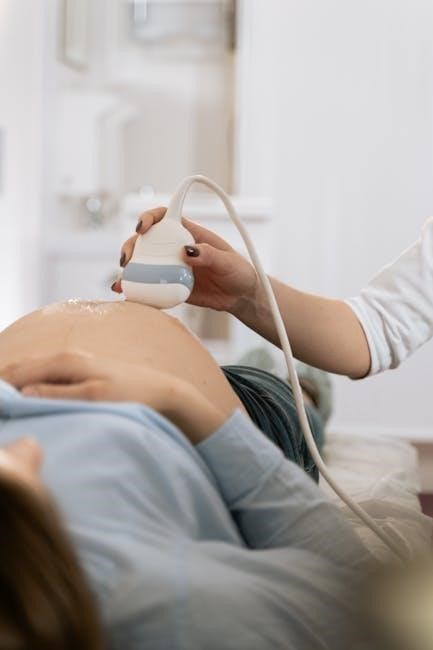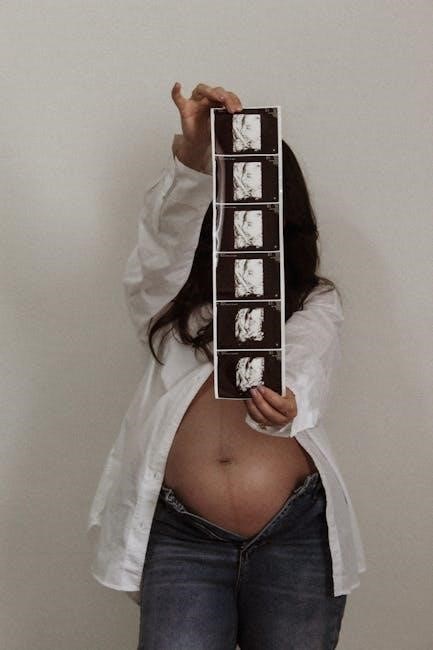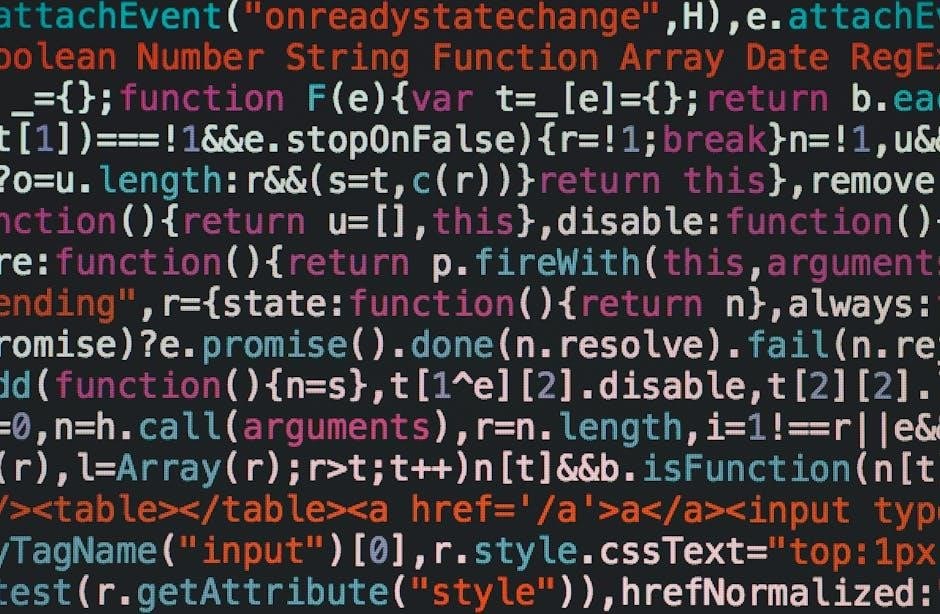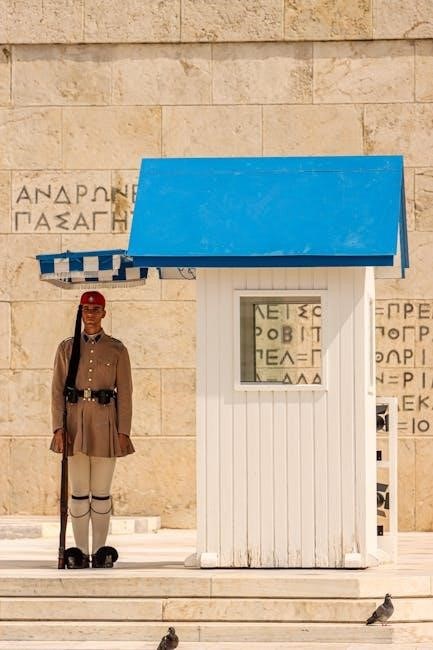CPT codes like 76872 and 55700 are essential for accurate billing of prostate biopsy procedures, ensuring proper reimbursement and compliance with medical coding standards, while adapting to new techniques.
1.1 Overview of CPT Coding System
The CPT coding system, maintained by the American Medical Association, offers standardized codes for medical, surgical, and diagnostic procedures to ensure accurate billing and reimbursement. Codes such as 76872, used for ultrasound-guided prostate biopsies, are part of this comprehensive system, updated annually to reflect medical advancements and ensure consistency and clarity in healthcare administration.
1.2 Importance of Accurate Coding in Medical Billing
Accurate coding ensures proper reimbursement, prevents denials, and reduces legal risks. Misuse of codes like 76872 and 55700 can lead to billing errors, highlighting the need for precise documentation and adherence to guidelines, ensuring efficient healthcare administration and compliance with regulatory standards, while maintaining patient trust and financial integrity for healthcare providers.

CPT Code for Transrectal Ultrasound-Guided Prostate Biopsy
The primary CPT code for this procedure is 76872, representing the ultrasound guidance, while 55700 is used for the biopsy itself, ensuring comprehensive procedure coding accuracy.
2.1 Primary CPT Code: 76872
CPT code 76872 is used for transrectal ultrasound guidance during prostate biopsy, capturing the imaging portion of the procedure. It includes real-time ultrasound evaluation of the prostate and surrounding structures to identify abnormalities, guiding needle placement for tissue sampling. This code is essential for accurately billing the diagnostic imaging component of the biopsy process, ensuring proper reimbursement for the ultrasound guidance provided.
2.2 Secondary CPT Code: 55700
CPT code 55700 is used for the biopsy procedure itself, representing the surgical aspect of the process. It covers needle or punch biopsies of the prostate, encompassing single or multiple samples, and is essential for billing the actual tissue collection. When used alongside 76872, it ensures comprehensive reimbursement for both the imaging guidance and the biopsy procedure, providing a complete billing solution for this medical service.

Detailed Explanation of CPT Code 76872
CPT code 76872 represents transrectal ultrasound guidance for prostate biopsy, ensuring precise tissue sampling. It is essential for diagnostic accuracy and proper billing of the procedure.
3.1 Definition and Scope of Code 76872
CPT code 76872 specifically refers to transrectal ultrasound guidance for prostate biopsy. It encompasses the ultrasonic imaging procedure used to direct needle placement, ensuring accurate tissue sampling. This code is essential for billing and documentation, reflecting the diagnostic imaging component of the biopsy process.
3.2 Clinical Indications for Using Code 76872
CPT code 76872 is typically used when a transrectal ultrasound-guided biopsy is performed to evaluate suspected prostate cancer or abnormalities. It applies to cases with elevated PSA levels, palpable lesions, or suspicious findings on imaging. This code is essential for documenting the diagnostic imaging component of the procedure, ensuring accurate billing and compliance with medical coding standards.
Detailed Explanation of CPT Code 55700
CPT code 55700 represents a prostate biopsy, including needle or punch techniques, and is often used as a secondary code alongside 76872 for ultrasound guidance.
4.1 Definition and Scope of Code 55700
CPT code 55700 refers to a prostate biopsy procedure, including needle or punch biopsy, single or multiple samples, via any approach. It is commonly used for transrectal or transperineal methods. This code does not include imaging guidance but is often billed alongside 76872 for ultrasound-guided procedures. It represents the surgical aspect of the biopsy, focusing on tissue collection.
4.2 Clinical Indications for Using Code 55700
CPT code 55700 is used for prostate biopsies when clinical suspicion of cancer exists, such as elevated PSA levels or abnormal imaging. It applies to diagnostic or therapeutic tissue sampling via needle or punch biopsy, irrespective of the approach. This code is essential for procedures aimed at confirming malignancy or monitoring prostate health, aligning with transrectal or transperineal techniques when combined with imaging guidance.

Differences Between Transrectal and Transperineal Approaches
Transrectal biopsies use ultrasound guidance (CPT 76872), while transperineal approaches may involve temporary codes like 0137T for emerging techniques, differing in access and imaging requirements.
5.1 Coding for Transrectal vs. Transperineal Biopsy
Transrectal biopsies are coded with CPT 76872 for ultrasound guidance and 55700 for the biopsy procedure. Transperineal approaches may use temporary codes like 0137T due to their emerging nature. Coding differs based on the approach and imaging requirements, with transrectal being more standardized and transperineal often requiring specific documentation for reimbursement. Accurate coding ensures proper billing and compliance with payer guidelines.
5.2 Temporary Codes for Emerging Procedures
Emerging procedures, like stereotactic transperineal prostate biopsy, often rely on temporary codes such as 0137T for tracking and trending. These codes are used when no specific CPT code exists, allowing payers to monitor usage and reimbursement. However, they do not guarantee payment, and facilities may bill using 55700 as an alternative, though this does not align with the procedure’s unique nature. Standard codes like 76872 remain for established methods.

Billing Guidelines for Transrectal Ultrasound-Guided Biopsy
Accurate coding with CPT codes 76872 and 55700 is crucial for billing transrectal ultrasound-guided prostate biopsies. Adherence to Medicare and payer-specific guidelines ensures proper reimbursement and compliance.
6.1 When to Use Codes 76872 and 55700 Together
CPT codes 76872 and 55700 are used together when both an ultrasound-guided procedure and a prostate biopsy are performed. 76872 covers the ultrasound guidance, while 55700 accounts for the biopsy itself. This combination ensures comprehensive billing for the entire procedure, avoiding claim denials and ensuring accurate reimbursement from payers.
6.2 Medicare and Payer-Specific Billing Rules
Medicare and other payers require adherence to specific billing rules for CPT codes 76872 and 55700. Medicare does not bundle these codes, allowing separate payment when services are distinct. However, payer policies may vary, necessitating verification of reimbursement guidelines. Proper documentation is crucial to avoid denials and ensure accurate payment for transrectal ultrasound-guided prostate biopsy procedures.

Documentation Requirements for Accurate Coding
Patient records must include detailed ultrasound findings, biopsy specimen count, and clinical rationale for the procedure to support accurate coding of CPT codes 76872 and 55700.
7.1 Essential Elements to Include in Medical Records
Medical records for prostate biopsy procedures must include ultrasound imaging results, number of biopsy samples, patient identification, procedure date, and physician authentication. Detailed documentation ensures accurate coding and compliance with billing requirements, facilitating proper reimbursement for CPT codes 76872 and 55700. Accurate records help prevent claim denials and support medical necessity.
7.2 Role of Ultrasound Results in Coding
Ultrasound results are critical for coding accuracy, confirming medical necessity for biopsy procedures. Images guide needle placement, ensuring precise sampling. Documentation of ultrasound findings supports the use of CPT codes 76872 and 55700, validating the procedure and facilitating correct billing. Accurate correlation between ultrasound results and biopsy samples ensures compliance with coding guidelines and payer requirements.

Reimbursement and Payment Considerations
Reimbursement rates for CPT codes 76872 and 55700 vary by payer, with Medicare and private insurers applying different payment rates based on procedure complexity and geographic location.
8.1 Reimbursement Rates for CPT Codes 76872 and 55700
Reimbursement rates for CPT codes 76872 and 55700 vary by payer, with Medicare and private insurers applying different payment rates. Factors influencing reimbursement include procedure complexity, location, and payer-specific policies. Accurate coding ensures proper payment, while incorrect coding may lead to reduced or denied claims. Staying updated on payer guidelines is crucial for optimal reimbursement outcomes in prostate biopsy billing.
8.2 Variations in Reimbursement Across Payers
Payers, including Medicare and private insurers, have varying reimbursement rates for CPT codes 76872 and 55700. Reimbursement amounts depend on regional factors, contract negotiations, and policy updates. Some payers may bundle payments for combined procedures, while others reimburse each code separately. Understanding these variations is essential for accurate billing and maximizing financial outcomes for prostate biopsy services.

Common Coding Challenges and Solutions
Coding challenges include selecting the correct CPT codes for biopsy procedures, ensuring accurate documentation, and staying updated on coding guidelines to avoid claim denials and delays.
9.1 Avoiding Denials by Paying Attention to Coding Details
Avoiding denials requires precise coding and thorough documentation. Ensure correct use of CPT codes like 76872 and 55700 for transrectal ultrasound-guided prostate biopsies. Accurate documentation of the procedure and patient details is crucial. Adhering to payer-specific guidelines and avoiding use of incorrect codes helps prevent claim denials, ensuring compliance and timely reimbursement.
9.2 Addressing Discrepancies in Coding Guidelines
Discrepancies in coding guidelines can lead to confusion and billing errors. Always refer to the latest CPT manuals and payer-specific updates. For transrectal ultrasound-guided biopsies, ensure codes like 76872 and 55700 are used correctly. If conflicts arise, consult official coding resources or seek guidance from experts to resolve issues promptly and maintain compliance with billing standards.

Future Updates and Trends in Prostate Biopsy Coding
Emerging techniques like MRI-guided biopsies may require new CPT codes. Temporary codes, such as 0137T, are being used for innovative approaches, prompting regular updates to coding guidelines.
10.1 Emerging Technologies and Their Impact on Coding
Advancements in biopsy techniques, such as MRI-guided and robotic-assisted methods, are influencing CPT coding. Temporary codes like 0137T are being utilized to track new procedures, ensuring accurate billing and data collection. These innovations require regular updates to coding guidelines, reflecting the evolving landscape of prostate biopsy practices and reimbursement strategies.
10.2 Potential Changes in CPT Codes for Prostate Biopsy
Future updates may introduce new CPT codes for emerging biopsy methods, replacing temporary codes like 0137T. This could enhance specificity in billing for advanced techniques, ensuring better reimbursement and data tracking. Regular monitoring of coding updates is crucial for medical billers to adapt to these changes efficiently and maintain compliance with evolving guidelines and payer requirements.
Accurate coding with 76872 and 55700 ensures proper reimbursement and compliance. Staying updated on coding guidelines and emerging techniques is crucial for efficient medical billing and optimal patient care.
11.1 Summary of Key Coding Elements
The primary codes for transrectal ultrasound-guided prostate biopsy are 76872 for the ultrasound guidance and 55700 for the biopsy procedure. Accurate documentation of the approach and ultrasound findings is critical for correct coding. Temporary codes like 0137T may apply to emerging techniques, ensuring proper tracking and reimbursement. Adhering to coding guidelines and staying updated on changes is essential for compliance and efficient billing processes.
11.2 Best Practices for Coding Transrectal Ultrasound-Guided Prostate Biopsy
Always use 76872 for ultrasound guidance and 55700 for the biopsy procedure. Ensure accurate documentation of the approach and ultrasound findings. Verify payer-specific guidelines, especially for Medicare. Stay updated on coding changes and temporary codes like 0137T for emerging techniques. Regular training and audits help maintain compliance and optimize reimbursement. Consistent coding practices reduce errors and improve billing efficiency.



